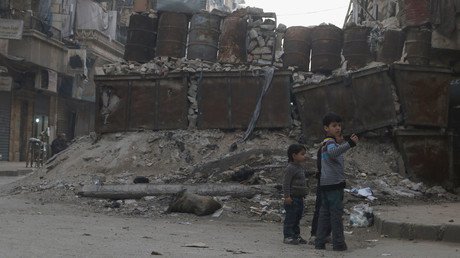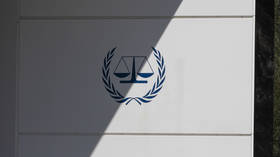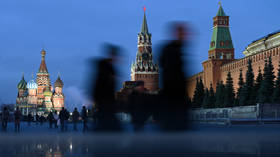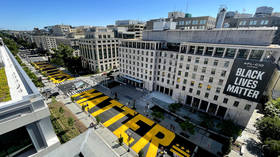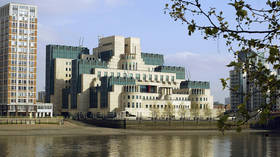Russian Su-30 jets escort UN aid delivery to ISIS-besieged Syrian town (VIDEO)
Russian Su-30 fighter jets have provided a safety corridor for an IL-76 cargo plane freighted by World Food Program to carry out the delivery of vital humanitarian cargo to the Syrian city of Deir Ezzor, besieged by the Islamic State militants.
The delivery, protected by the Russian Air Force, was carried out as part of the UN World Food Program in order to help some 200,000 residents of Deir Ezzor, who are in urgent need of foodstuffs, medicine, fuel and other prime necessity goods.
“The delivery of the UN humanitarian goods under the cover of Russian fighters was successful,” the military said in a statement, adding that the IL-76 dropped pallets full of food and medicine.
Thanks Canada, Germany, Italy, Jordan, Netherlands, Russia & USA for help in airdropping food to Deir Ezzor #Syriapic.twitter.com/IsfWqzGuD4
— World Food Programme (@WFP) April 13, 2016
The Russian military added that Sunday's airdrop was just the first batch of aid to be delivered to the besieged city this week, as Russia plans to fly in daily humanitarian cargo drops.
“The Russian fighter jets’ escorts in the Syrian skies of Russian transport company’s aircraft, which at the UN’s request are carrying out deliveries and airdrop of relief supplies to the much necessitous population in remote and besieged areas of the Syrian Arab Republic, will take place over this week,” the military said in a statement.
The WFP food assistance deliveries started to trickle in to the besieged areas of Deir Ezzor in late February this year, for the first time since March 2014. On February 24, WFP carried out its first high-altitude airdrop of supplies ever.
Russia however began airdropping its humanitarian cargo on the city some six weeks before the UN mobilized their efforts. On January 15, 2016, Russia said it had started humanitarian operations as a response to aid ending up with extremists in rebel-held areas, rather than civilian population the aid was destined for.
“The inhabitants are gradually coming back to Syrian cities and peaceful life is returning,” the head of the Russian General Staff’s operations department Lt. Gen. Sergey Rudskoy told reporters at the time. “In this context, the implementation of humanitarian operations will be a new line of work for the Russian armed forces in Syria.”
The first airdrops were made even before the ceasefire went into effect on February 27. The truce doesn’t apply to Islamic State (IS, formerly ISIS/ISIL), Al-Nusra Front, or other organizations designated by the United Nations’ Security Council to be terrorist.
ISIS militants besieged Deir Ezzor in May 2015, about the same time the jihadist groups captured the ancient city of Palmyra. While technically under Damascus command, the city has been cut off by the terrorists, who also run free inside the city, and regularly undermine the supply deliveries by assaulting the city’s airbase. For almost a year the elite Republican Guards of the 104th Airborne Brigade has successfully repelled the jihadist attacks.
On Saturday the Syrian army once again drove back the Islamic State's assault on the Deir Ezzor airport which tried to storm the strategic airfield from the west and the south flanks. According to reports 48 jihadists were killed as the Syrian army stood ground.
After retaking Palmyra last month, the Syrian army with the help of the Russian air force has broadened its operations against ISIS and vowed to retake Deir Ezzor, before moving on to the terrorists’ so-called capital of Raqqa.
